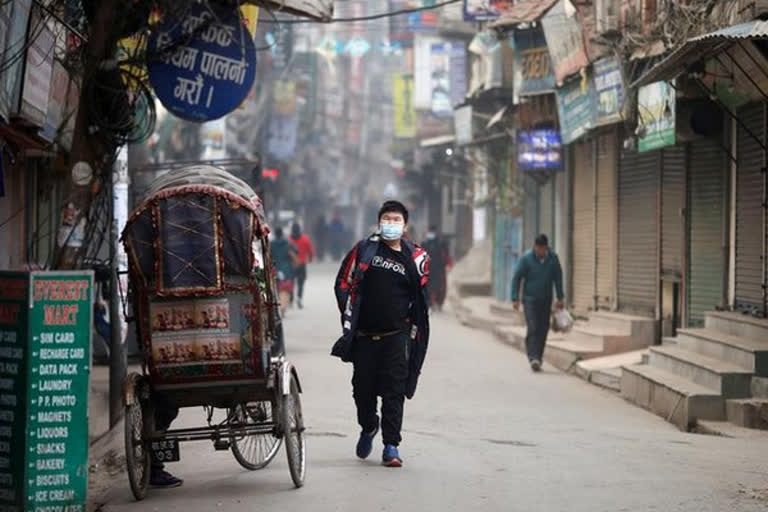New Delhi: The high-voltage diplomatic conundrum between India-Nepal ties continues to remain a flashpoint after Prime Minister Narendra Modi announced to extend the road in the Lipulekh region provoking outrage in Nepal including its top leaders who branded this construction “illegal”. It is pertinent to note here that a few days back, Nepal’s CPN (Maoist Centre) pledged to fight for the protection of disputed lands including Kalapani, Limpiyadhura, and Lipulekh with India.
It is hardly a secret that the internal tussle between the political parties of Nepal, after the collapse of the KP Sharma Oli government and the constant intervention of China’s footprints into the land-locked Himalayan region are the major factors behind these diplomatic tensions.
Similarly, former PM of Nepal, Jhala Nath Khanal, leader of CPN-Unified Socialist (CPN-US), issued a statement on Monday in which he has underscored that India’s latest move to widen the road in the Lipulekh territory is completely illegal as that road falls under Nepal’s territory.
“The attention of our party is drawn to the recent statement by the Indian Prime Minister that the road being illegally built in the Nepalese territory of Lipulekh will be further widened,” the statement read.
“The Indian government knows very well that the area of Lipulekh, Kalapani, and Limiyadhura are the sovereign territories of Nepal. Any development activity conducted there without consultation with the Nepalese government is totally illegal and it is a flagrant violation of our territorial integrity and national sovereignty,” the statement added.
Amid these rising tensions, Dr. Nishchal N. Pandey, Director, Centre for South Asian Studies, Kathmandu, speaking to ETV Bharat from Kathmandu said, “The new political map of Nepal and Kalapani is likely to be an election issue in Nepal. It is not clear whether elections are to be held very soon but some political parties are likely to exploit this issue for their electoral gains.”
This could be analyzed in the context when the bilateral ties between India and Nepal witnessed the greatest lows after Nepal released a new map showing Lipulekh, Kalapani, and Limpiyadhura as its own territories to which New Delhi responded that such artificial enlargement or territorial gains will not be acceptable to it.
At the epitome of these tensions in the construction being done by New Delhi at Lipulekh site, a key strategic site for New Delhi in terms of security and for religious significance as that road leads us to the Kailash Man Sarovar which could have frightened China’s notorious agenda as the route to Kailash Man Sarovar is being covered majorly via the China route and with this construction, an alternative route to this holiest site for Hindus would lay a strong foundation to New Delhi’s security interests.
While on the one side, the constant tussle between India-Nepal ties continues to echo in the background, one more development that topped the table is Swatantra Nagarik Group, a local Nepalese organization, recently organized a protest in Kathmandu condemning China for “interfering” in the country’s political and economic matters and encroaching Nepal’s land in many northern districts, including in Humla.
With this evolution, one thing that becomes crystal clear is Dragon’s hegemonistic agenda to interfere in the affairs of other states by using the techniques of persuasion and coercion to achieve its objective, a term which was coined up by Ranjit Guha, a prominent historian, known for his greatest contribution in the field of Subaltern studies.
The kind of intervention China has done and is continuing to do so, be it in the land of Tibet, Bhutan, Sri Lanka, Maldives, Pakistan, even in Africa and other parts of the world reflects the kind of narrative and ideology Beijing adheres to.
In the context of Nepal, there are various reports which show that how Beijing is attempting to control the politics of Nepal and this could be acknowledged that there has been a strong relationship between China and Nepal’s communist parties and that became evident in 2020 when there was an internal political tussle happening within the Nepal politics and China in response to the internal crisis sent a top diplomat to keep the Communist party in unison but even then, the government collapsed.
As of now, New Delhi hasn’t responded to Nepal’s allegations but it seems that the centuries-old Indo-Nepal relations are likely to suffer given the internal political hiccups within Nepal's politics and the threats posed by China.
Also Read: Nepal clamps restrictions after Covid cases soar by 69% in a day


